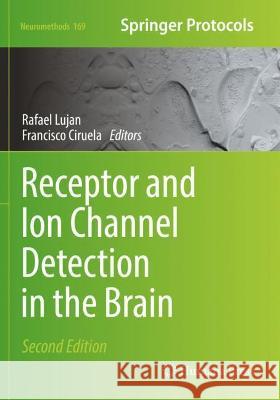Receptor and Ion Channel Detection in the Brain » książka
topmenu
Receptor and Ion Channel Detection in the Brain
ISBN-13: 9781071615249 / Angielski / Miękka / 2022
Receptor and Ion Channel Detection in the Brain
ISBN-13: 9781071615249 / Angielski / Miękka / 2022
cena 879,56
(netto: 837,68 VAT: 5%)
Najniższa cena z 30 dni: 844,38
(netto: 837,68 VAT: 5%)
Najniższa cena z 30 dni: 844,38
Termin realizacji zamówienia:
ok. 22 dni roboczych
Dostawa w 2026 r.
ok. 22 dni roboczych
Dostawa w 2026 r.
Darmowa dostawa!
This second edition volume expands on the previous edition with new information on the latest developments in the field, and the most up-to-date representative methodological information on molecular neuroanatomical and functional techniques that are currently used to study neurotransmitter receptors and ion channels in the brain. The chapters in this book are organized into three parts. Part One discusses molecular immunological and pharmacological aspects related to the detection of receptors and ion channels in the brain. Part Two explores the neuroanatomical techniques devoted to localizing receptors and ion channels within the central nervous system. Part Three looks at functional approaches devoted to ascertaining receptors and ion channels functionality in the brain. In the Neuromethods series style, chapters include the kind of detail and key advice from the specialists needed to get successful results in your laboratory.
Cutting-edge and comprehensive, Receptor and Ion Channels Detection in the Brain, Second Edition is a valuable resource that contains detailed molecular, cellular, neuroanatomical, and electrophysiological methods that will help researchers study neurotransmitter receptor and ion channel in any region of neuron of the brain.











